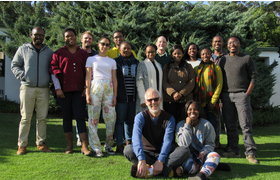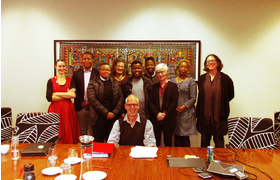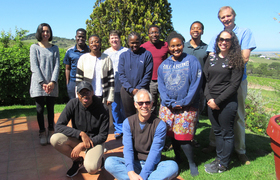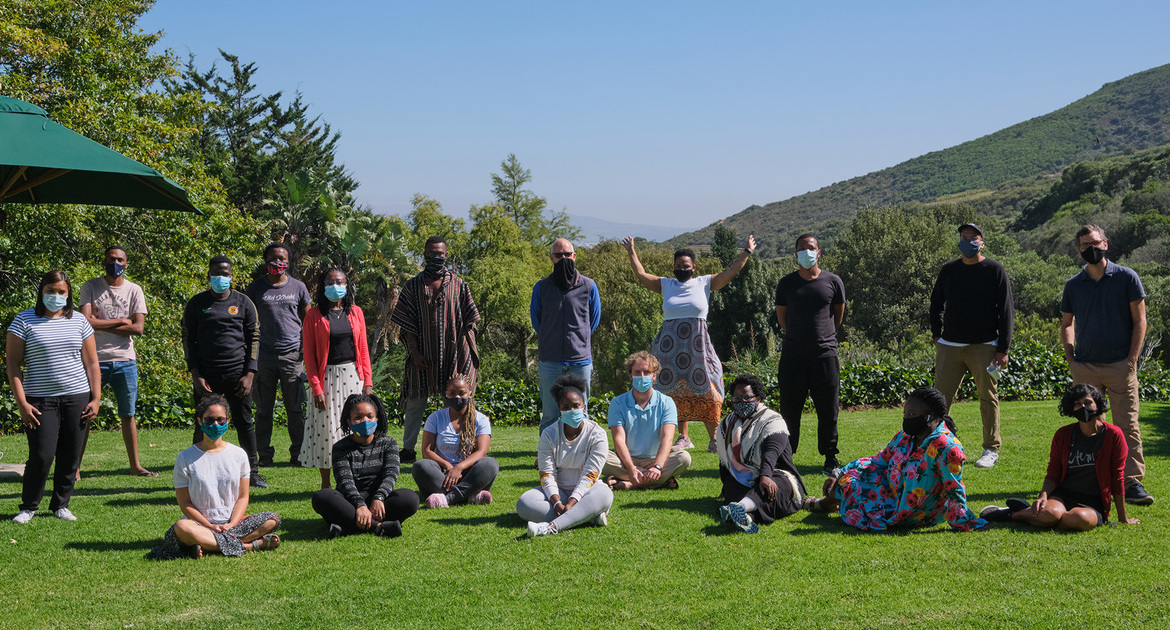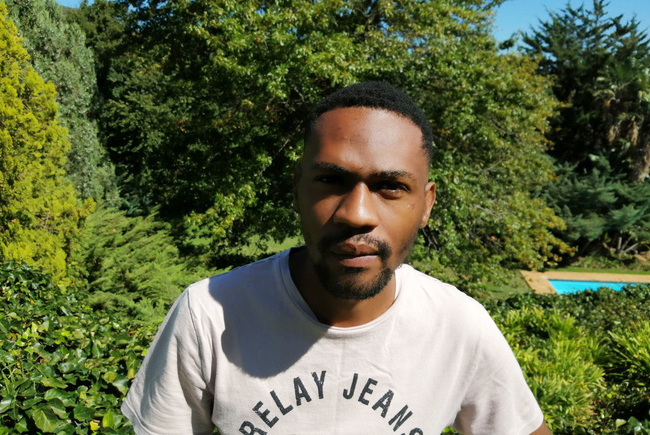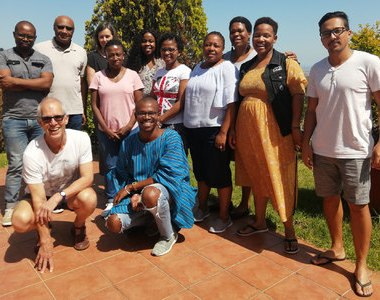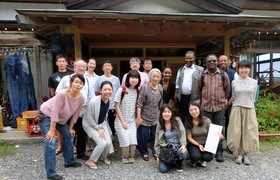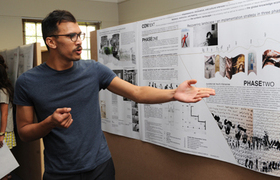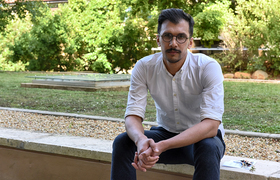President lays wreath at SS Mendi Memorial
21 February 2019 | Story Supplied. Photo Michael Hammond. Read time 2 min.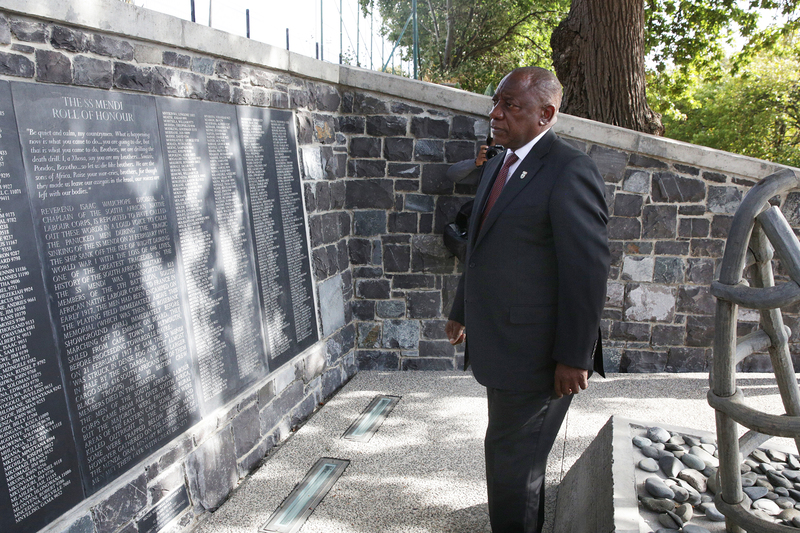
President Cyril Ramaphosa, as Commander-in-Chief of the South African Armed Forces, visited the University of Cape Town’s (UCT) lower campus to lay a wreath at the SS Mendi Memorial in honour of the South African soldiers who died when the ship sank in 1917.
The event this morning kicked off Armed Forces Day, first observed in 2012, which also saw the president attend a military parade at Bloubergstrand where he presented medals to South African National Defence Force (SANDF) members in recognition of their outstanding performance in various military operations.
The SS Mendi, a military steamship, sank in dense fog in the English Channel on 21 February 1917, after being struck by the SS Darro, a much larger cargo ship. The Mendi was transporting members of the 5th battalion of the South African Native Labour Contingent to France, to support the war effort.
Before boarding the ship, the troops were encamped at what was then the Rosebank Showgrounds Oval, and which is today a field that forms part of the UCT Fitness Centre, and is the site of the memorial.
A total of 616 South Africans and 30 British crew members died in the disaster.
 This work is licensed under a Creative Commons Attribution-NoDerivatives 4.0 International License.
This work is licensed under a Creative Commons Attribution-NoDerivatives 4.0 International License.
Please view the republishing articles page for more information.
New Generation of Academics Programme (nGAP)
UCT has responded energetically to the New Generation of Academics Programme (nGAP), an opportunity provided by the Department of Higher Education (DHET) to build a new generation of black South African academics. The DHET’s 2015 vision document, “Staffing South Africa’s Universities Framework: A comprehensive, transformative approach to developing future generations of academics and building staff capacity”, proposes a suite of initiatives to address the challenge, with nGAP being the major instrument to increase the numbers of black South African academics.
The programme “involves the recruitment of highly capable scholars as new academics, against carefully designed and balanced equity considerations and in light of the disciplinary areas of greatest need”. The nGAP scholars are appointed into permanent positions where from the outset their conditions are customised to ensure their successful induction into the ranks of established academics.
The DHET provides funding over a six-year period to support the appointment of an nGAP lecturer, and their time is protected to provide the best possible opportunity for the completion of a doctorate degree in the shortest possible time. Once the degree is completed, the nGAP lecturer’s teaching commitments are steadily increased until they shoulder a full teaching load.
Since the first advertisement for nGAP posts in 2015, UCT has been awarded 17 nGAP positions: 5 (Phase 1), 4 (Phase 2), 3 (Phase 3) and 5 (Phase 4). These are distributed across all faculties.
UCT’s nGAP scholars operate as a single cohort, managed and coordinated by Dr Robert Morrell. Lecturers meet for quarterly meetings, writing retreats and various capacity-building activities all designed to support the completion of postgraduate qualifications (particularly doctorates) and to develop records of achievement that will testify to their emergence as self-standing, excellent academics. Each lecturer is mentored by a senior scholar, who provides support and guidance on the challenges that routinely face academics.
The nGAP manager sets great store in building the cohesion of the cohort and encouraging the establishment of new UCT networks while producing a collaborative, mutually supportive and embracing work culture.
According to Dr Morrell, “This group of academics will lead UCT in 15 to 20 years’ time ... Their vision of excellence, of being African and South African, of serving a wider community and producing knowledge for the planet, the continent and the country, will power UCT in years to come.”
Newsletters
In the news




